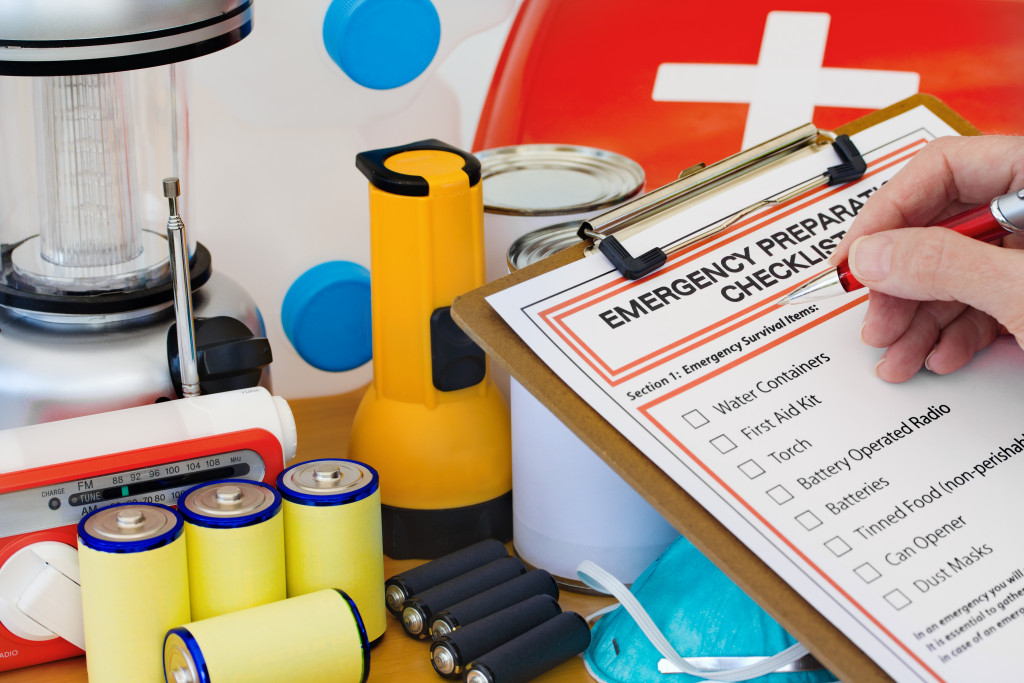The first thing that comes to mind for safety is home. It is the safest place to stay if there is a natural disaster. However, you have to ensure that your house can handle any natural or accidental disasters. Home upgrades can help you prevent unfortunate events, such as loss of property.
If you don’t prepare your home, any mishaps can wipe it away. In this case, your family can be at risk as well. However, you can reduce the effect of these events by improving your home’s security.
Home Improvement
There are ways to make your family stay at home despite these events. Home upgrades can keep the security inside and outside your house. Here are a few:
- Install a new garage door that can withstand high winds. Storm shutters are excellent options.
- Ask a professional to bolt your home to the foundation. It will keep your home to stay in place.
- Use heat-resistant curtains to prevent the heat from wildfires, which can cause a fire in your house. Modern residential and commercial fire-resistant doors are highly available in the market.
- Opt for safe rooms. These rooms consist of steels that can protect the family from winds, storms, and other threats.
You can make your home an intact place to stay during these conditions. It’s better if your house can handle these threats than going somewhere else. If you have seen areas that you can upgrade, it is best to do so. Otherwise, you’ll end up stressing out about the massive damages.
Defend Your House and Your Family
A disaster is beyond anyone’s control. It will always come at some point in life. For this reason, it is best to prepare the house and your family against it. Here’s what you need to know:
- Know what disaster is coming: Various types of natural crises can happen. Each of them requires a different approach to prepare and be safe from it. It is best to get updates of what your location is at risk. Your area can be prone to any of the following:
- Earthquakes
- Wildfires
- Floods
- Tornadoes
- Blizzards
- Storms and hurricanes
- Volcano Eruptions
- Emergency alerts: Getting information from emergency response groups, such as Red Cross, is helpful. It can serve as your warning. In effect, you can already take action, if necessary. These alerts are helping people to prepare before the disaster hits their area.
- Go bags: You have to secure a bag with all the vital supplies. By doing this, if your family has to evacuate, everyone will only pick these bags and are ready to go. Below are few things that need to be inside these go bags:
- Food and water (good for three days)
- Flashlights and radio (battery-operated)
- Extra batteries
- First aid kit
- Emergency whistle
- Trash bags and duct tape
- Tools to turn off utilities
- Can opener
- Maps
- Cellphone
- Pet supplies (if you have pets)
- Other supplies for family sanitation

- Action plan: Inform the whole family of what they need to do if things get out of hand. Agree with meeting places if the family splits up. Additionally, make sure to have a list of contact persons. Give a copy to each member and also put one inside the first aid kit. Your action plan can also include staying in with relatives.
- Prepare your home: Be sure to unplug all your appliances if the power goes out. By doing this, you can prevent damage once the electricity comes back. You can leave a lamp on to know if the power already came back. Moreover, you have to fill in containers or tubs if it will affect water lines. You can use this water for hand-washing or flushing the toilet.
- Food supply: Protein-rich food is essential. It is best to choose those that are plant-based. A few of those are black beans, olives, or nuts. Meanwhile, canned tuna or salmon is also high in protein. You can also store other canned goods. Be sure to check their expiration dates.
- Storage: Proper storage can help you salvage items afterward. Dry goods must be inside waterproof containers if flooding is possible. It is best to freeze goods you will not use right away, such as meat or poultry. Aside from that, be sure to store important documents in a safe place.
- Safe Return: If your family left the house, there’s no need to rush back. It is best to have someone in the family check the situation first. You need to confirm the following:
- Is there any damage outside like cracks or fallen cables?
- Do you hear sounds or smell gas?
- Do you see any damage inside the house using a flashlight?
- Are there appliances affected?
In the end, preparing is better than panicking. Natural disasters are inevitable, but you can reduce their impact and damage with proper planning. Remember that your family’s safety is your top priority.